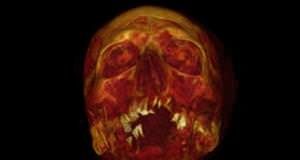About Nutrition Review
About Nutrition Review
Nutrition Review is a free online resource covering issues related to the therapeutic benefits of nutritional supplements and their potential role in...
Dementia Costs Top Those For Heart Disease Or Cancer, Study Finds
The monetary cost of dementia in the United States ranges from $157 billion to $215 billion annually, making the disease more costly to the nation than either heart disease or cancer, according to a new RAND Corporation study. The greatest economic cost of dementia is associated with providing institutional and home-based long-term care rather than medical services, according to the findings published in the April 4 edition of the New England Journal of Medicine.
Baldness Linked To Increased Risk Of Coronary Heart Disease
Male pattern baldness is linked to an increased risk of coronary heart disease, but only if it's on the top/crown of the head, rather than at the front, finds an analysis of published evidence in the online journal BMJ Open. A receding hairline is not linked to an increased risk, the analysis indicates.
Our Internal Clocks Can Become Ticking Time Bombs For Diabetes And...
If you're pulling and all-nighter to finish a term paper, a new parent up all night with a fussy baby, or simply can't sleep like you once could, then you may be snoozing on good health. That's because new research published in The FASEB Journal used mice to show that proper sleep patterns are critical for healthy metabolic function, and even mild impairment in our circadian rhythms can lead to serious health consequences, including diabetes and obesity.
Have Asthma? You Likely Have An Allergy As Well
Asthma is becoming an epidemic in the United States. The number of Americans diagnosed with asthma grows annually, with 26 million currently affected. And according to a new study, nearly two-thirds or more of all asthmatics also have an allergy, which can make this spring season particularly bothersome.
Bladder Condition May Worsen Insomnia Symptoms In Older Adults
A new study suggests that the bladder condition nocturia (the need to wake up throughout the night to urinate ) may worsen the already poor sleep of older adults with insomnia. "The results raise the clinical question of treating nocturia to help individuals with insomnia," said Jamie Zeitzer, PhD, the study's lead author. "That is, could much of the insomnia or poor sleep that occurs in older individuals be alleviated by treatment of nocturia? Of course, the opposite is quite possible – that proper treatment of insomnia might reduce the occurrence of nocturia as well."
A Ton Of Bitter Melon Produces Sweet Results For Diabetes
Scientists have uncovered the therapeutic properties of bitter melon, a vegetable and traditional Chinese medicine, that make it a powerful treatment for Type 2 diabetes. Teams from the Garvan Institute of Medical Research and the Shanghai Institute of Materia Medica pulped roughly a tonne of fresh bitter melon and extracted four very promising bioactive components.
Job Burnout Can Severely Compromise Heart Health
Americans work longer hours, take fewer vacation days, and retire later than employees in other industrialized countries around the globe. With such demanding careers, it's no surprise that many experience job burnout -- physical, cognitive, and emotional exhaustion that results from stress at work. Researchers have found that burnout is also associated with obesity, insomnia, and anxiety.
Mummy CT Scans Show Preindustrial Hunter Gatherers Had Clogged Arteries
Like nearly 4.6 million Americans, ancient hunter-gatherers also suffered from clogged arteries, revealing that the plaque build-up causing blood clots, heart attacks and strokes is not just a result of fatty diets or couch potato habits, according to new research in the journal The Lancet.
Chewing Ability Linked to Reduced Dementia Risk
Can you bite into an apple? If so, you are more likely to maintain mental abilities, according to new research from Karolinska Institutet in Sweden.
The population is aging, and the older we become the more likely it is that we risk deterioration of our cognitive functions, such as memory, decision-making and problem solving. Research indicates several possible contributors to these changes, with several studies demonstrating an association between not having teeth and loss of cognitive function and a higher risk of dementia.















